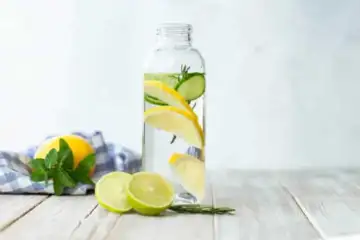
We’ve all been there-that post-lunch discomfort when bloating seems to take centre stage, leaving us feeling sluggish and regretful of our meal choices.
Bloating, often triggered by overeating, consuming certain foods, or eating too quickly, can put a damper on our day and hinder our overall sense of well-being. From mindful eating techniques to bloat-reducing food swaps, we navigate the culinary landscape to provide you with practical tips that promise to keep bloating at bay and ensure your post-lunch experience is one of comfort and satisfaction.
The ideal window for lunch is often from noon to 1:30 p.m. The body’s natural circadian rhythms are in harmony with this time frame, which generally supports healthy digestion and energy levels. The body’s metabolic rate is usually at its highest around noon, so eating lunch then might provide you with a good energy boost for the rest of the day. Additionally, eating lunch in this window allows the body’s internal clock to be better synchronised, which helps enhance digestion, metabolism, and general health.
Here’s What You Should Do If You Eat Late Lunches:
There are a number of tactics you may use to modify your eating habits and reduce any negative impacts on your digestion and general well-being if you have a habit of eating lunch later than usual.
Gradual Shift:
Start by adjusting your lunchtime such that it falls inside the traditional 12:00-1:30 PM timeframe. Until you attain your target, move your lunchtime forward by around 15 minutes each day.
Mindful Planning:
Planning mindfully will help you prevent acute hunger, which can cause overeating or poor food decisions later in the day. Plan your meals and snacks throughout the day. By eating healthy, nutrient-dense snacks throughout the day, you can maintain your energy levels and avoid feeling overly hungry by the time lunchtime rolls around.
Set Reminders:
Use your phone or computer to set alarms or reminders that will remind you to start preparing or eating lunch at the specified hour. Your new eating pattern can be strengthened with frequent reminders.
Stay Hydrated:
Water should be consumed regularly throughout the morning to stay hydrated. Hunger pangs can occasionally be confused with thirst. Water can help you get through until lunchtime.

Reduce Stress:
Stress can interfere with your eating routine. To make dining more relaxing, try stress-relieving exercises like deep breathing, meditation, or a little stroll.
Light Breakfast:
Eat a light, well-balanced breakfast that will keep you full without filling you up too much. This can help you avoid having a severe case of hunger and the impulse to binge when noon eventually comes.
Balanced Lunch:
When you do eat lunch, choose a meal that is balanced with a variety of proteins, fibre-rich carbohydrates, and healthy fats. This can provide you with long-lasting energy and minimise energy dumps after lunch.




 Driving Naari Programme launched in Chandigarh
Driving Naari Programme launched in Chandigarh






























